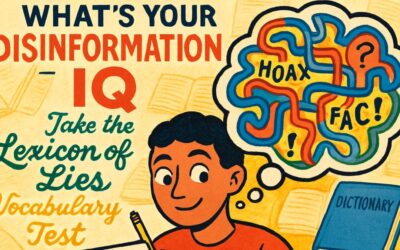Introduction
Welcome, movie buffs and language learners! Have you ever noticed how lines from your favorite films and TV shows have a way of creeping into everyday conversations? From a dramatic declaration in a tense meeting to a funny quip among friends, these expressions are more than just memorable quotes; they are a vibrant, living part of the English language. They are modern idioms, and understanding them is a key to unlocking a more nuanced and fluent level of communication.
This quiz is designed to be more than just a trivia test about your favorite on-screen moments. It’s an interactive learning experience that will help you:
Master Idioms in Context: See how famous expressions are used in realistic, everyday situations.
Understand Nuance and Subtext: Learn the subtle emotions and meanings behind these powerful phrases.
Boost Your Conversational English: Gain the confidence to use these idioms yourself, making your English sound more natural and expressive.
Connect with Culture: Deepen your understanding of English-speaking cultures, where film and television are a huge part of the shared social language.
Each question will place you in a scenario where you need to choose the perfect idiom to get the meaning across. The hints will guide you, and the detailed feedback for every option will explain the why behind the right and wrong answers. This isn’t just about getting it right; it’s about learning from every choice.
So, are you ready to prove you can speak fluent Hollywood? Lights, camera, action!
Quiz Content Audio
Learning Quiz
This is a learning quiz from English Plus Podcast, in which, you will be able to learn from your mistakes as much as you will learn from the answers you get right because we have added feedback for every single option in the quiz, and to help you choose the right answer if you’re not sure, there are also hints for every single option for every question. So, there’s learning all around this quiz, you can hardly call it quiz anymore! It’s a learning quiz from English Plus Podcast.
Speaking Fluent Hollywood – Unpacking On-Screen Idioms
Hello and welcome back! If you’ve just tackled our quiz, you’ve seen firsthand how the language of movies and TV shows isn’t just for entertainment; it’s a powerful force that shapes how we communicate. These phrases, born in moments of drama, comedy, and suspense, have taken on a life of their own, becoming idioms that add color, nuance,and a touch of cultural savvy to our everyday English. Let’s take a closer look at the phrases from the quiz and see what makes them so useful.
First, let’s talk about strategy and conflict. In The Godfather Part II, Michael Corleone is advised to “keep your friends close, but your enemies closer.” This has become a cornerstone idiom for anyone in a competitive or political situation. It’s a chillingly pragmatic piece of advice, reminding us that threats often require more attention than allies. Similarly, when a situation has devolved into a hopeless stalemate, like our feuding co-founders, we call it a “Mexican standoff.” This term, popularized by countless action films, perfectly describes a deadlock where no one can advance or retreat without getting hurt. It paints a vivid picture of high-stakes tension. And when you’re forced to adopt a ruthless strategy to get a job done, like our new CEO, you have to “play hardball.” This idiom from the world of sports now universally means being tough, aggressive, and uncompromising in business or negotiation.
Of course, problems inevitably arise. When a serious issue suddenly appears, the phrase “Houston, we have a problem” is a surprisingly calm and effective way to announce it. Its origin in the real-life Apollo 13 crisis, immortalized in the film, gives it a sense of gravity without causing panic. But what if the problem isn’t the situation, but the people involved? The line “What we’ve got here is failure to communicate” from Cool Hand Luke has become the classic diagnosis for interpersonal conflict. It wisely points out that many disputes stem not from malice, but from a simple lack of understanding. And when you’re on the receiving end of a problem you created, there’s no choice but to “face the music,” an idiom that means accepting the unpleasant consequences of your actions.
Many of these expressions are brilliant for expressing criticism or skepticism. Let’s say you sit through a presentation that’s all style and no substance. What do you say? You borrow a line from a 1980s fast-food commercial that became a cultural phenomenon: “Where’s the beef?” It’s a short, punchy, and slightly humorous way to demand substance over flash. A similar idea is captured in the phrase “all sizzle and no steak.” It’s a wonderfully visual metaphor for something that promises a lot but delivers very little. And if you refuse to answer questions and block an investigation, you’re “stonewalling,” a term that perfectly captures the image of a solid, unmoving wall.
On the flip side, these idioms can be incredibly motivating. “Carpe diem,” or “seize the day,” was powerfully brought into modern culture by the film Dead Poets Society. It’s a call to action, urging us to live life to the fullest and pursue our dreams, just like the woman who quit her job to become a chef. Another powerful call to action comes from The Shawshank Redemption: “Get busy living, or get busy dying.” It’s a stark, powerful choice. It tells us that inaction is a form of decay, and that to truly live, we must be active participants in our own lives. And when you’re asking someone to trust in an uncertain but promising new idea, you ask them to “take a leap of faith,” a beautiful phrase that acknowledges risk while championing belief and vision.
Some of the most useful idioms are those that describe complex psychological states. Have you ever found yourself obsessing over a problem, with each clue leading you deeper into a maze of confusion? You’re “going down the rabbit hole,” a perfect metaphor courtesy of Alice in Wonderland. It captures that feeling of being lost in a strange, all-consuming puzzle. And what about the feeling of complete exhaustion from overwork? The modern workplace has given us the term “burnout,” which accurately describes a state of mental, physical, and emotional depletion. It’s a critical concept for understanding the pressures of modern life.
Finally, these phrases are often just the perfect, vivid metaphors for life’s situations. A complete and chaotic disaster is a “train wreck.” A person who believes every lie they’re told “swallows it hook, line, and sinker.” And someone who starts out unremarkably but blossoms into someone brilliant and successful is a classic “ugly duckling.”
By learning these expressions, you’re not just memorizing lines from movies. You’re learning a kind of cultural shorthand. You’re learning to express complex ideas in a way that is not only efficient but also creative and relatable. These idioms connect us to shared stories, and using them correctly shows a deep and comfortable command of the English language. So next time you’re watching a movie, listen closely. You might just be hearing the next great idiom being born.










0 Comments